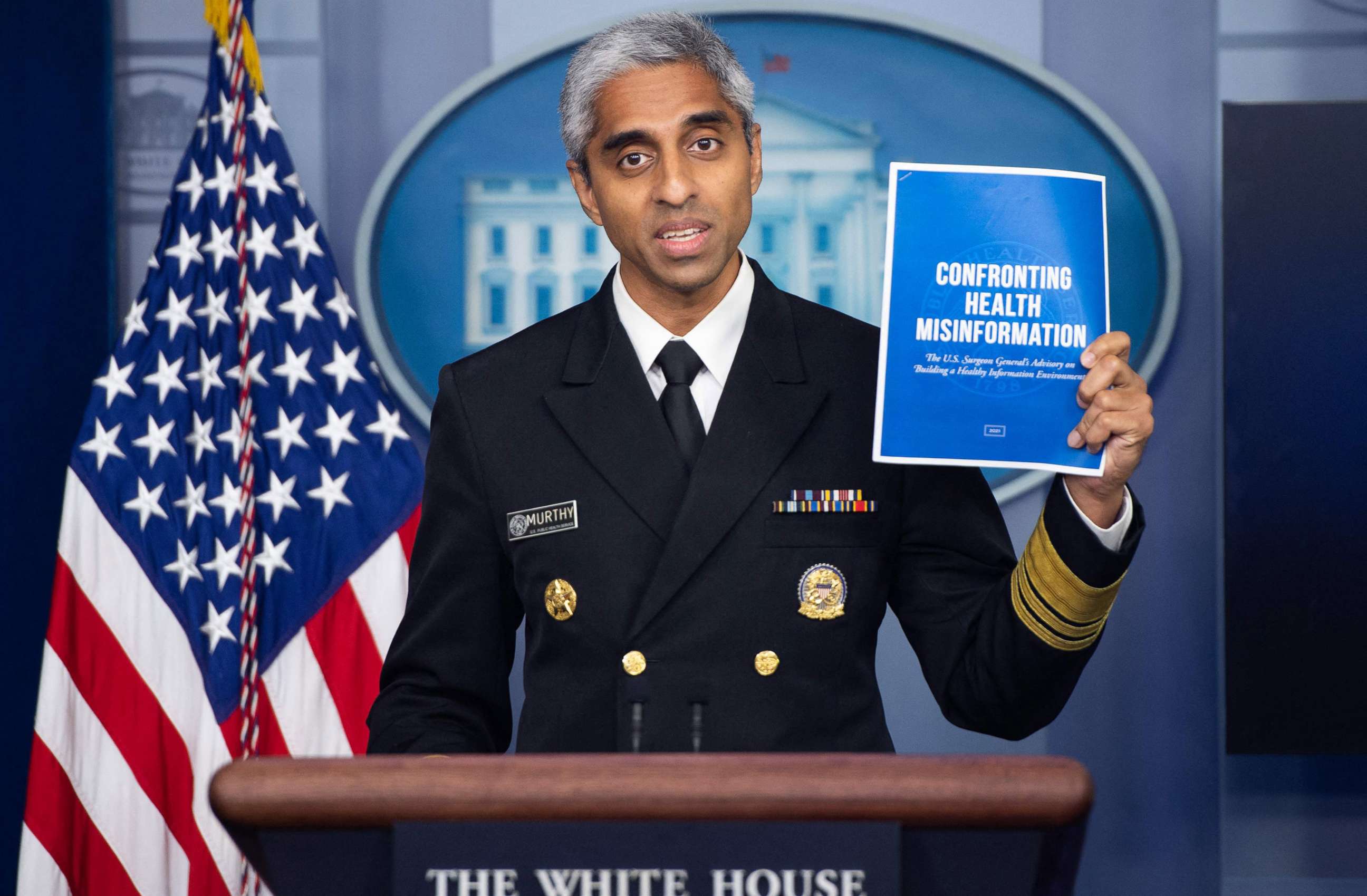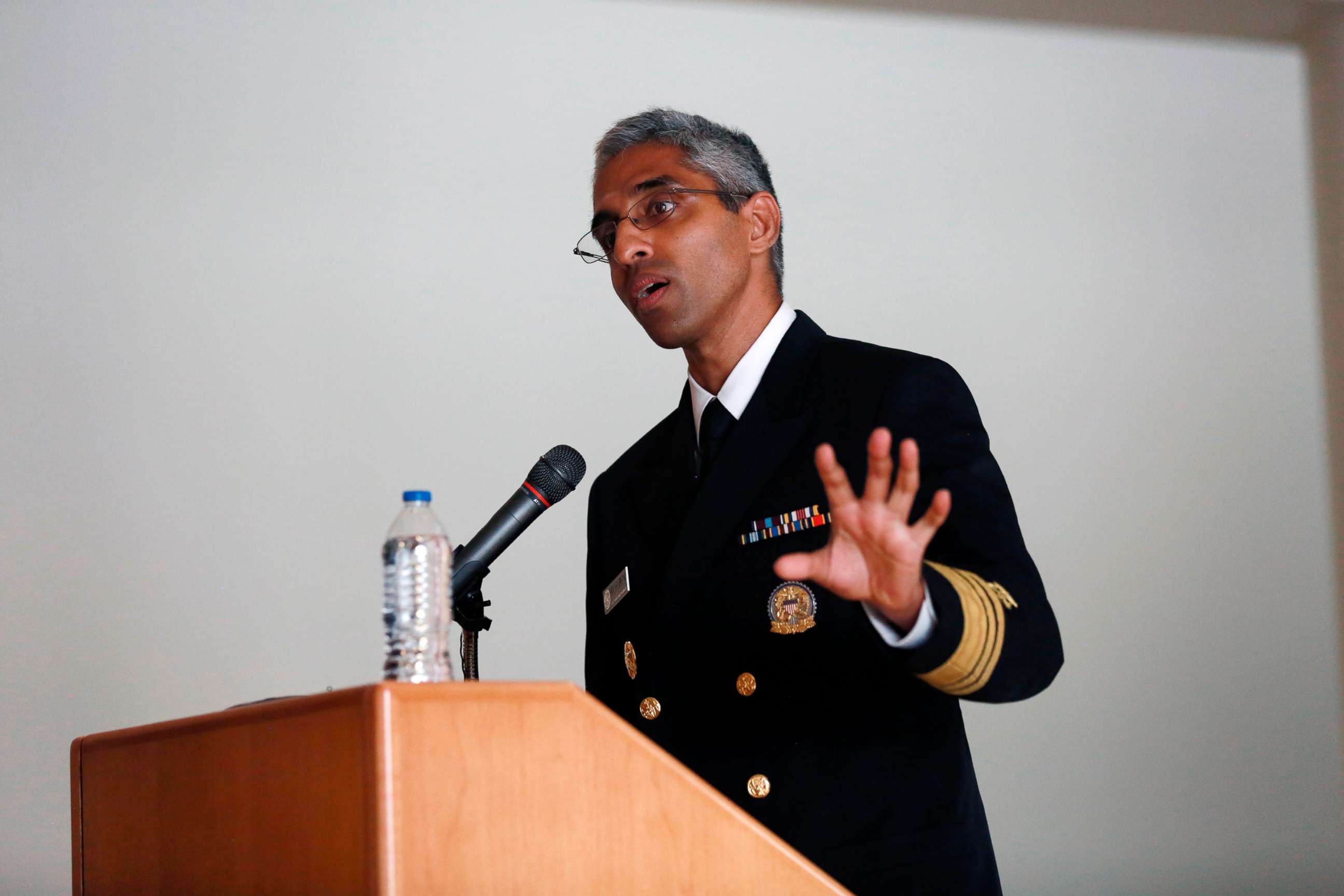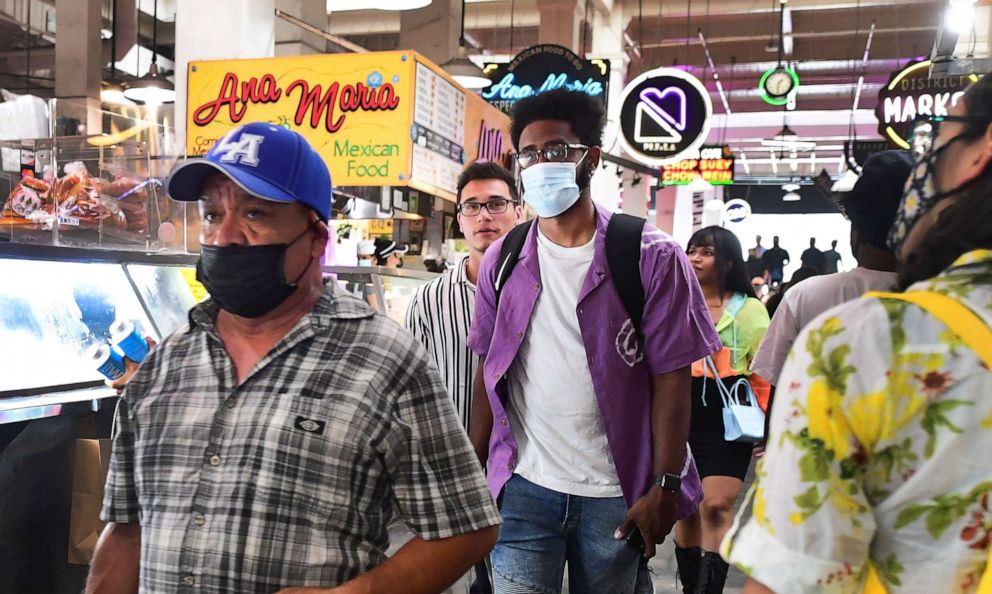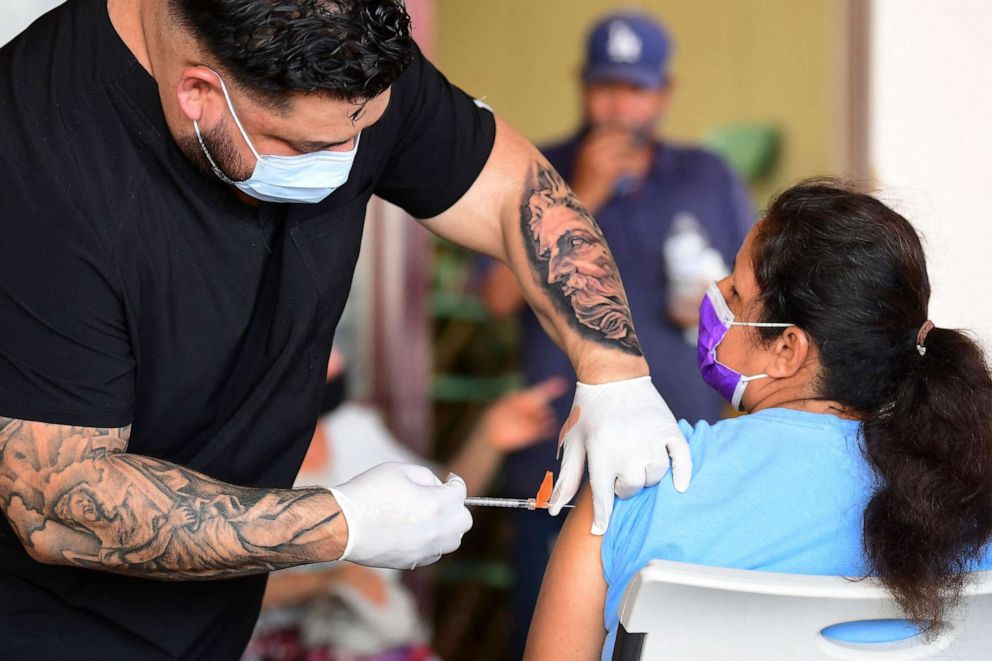Surgeon general warns misinformation an 'urgent threat' to public health
A failure to curb health misinformation puts American lives at risk, he said.
The surgeon general on Thursday warned Americans about what he called the "urgent threat of health misinformation" amid the government's current push to boost stalling vaccination rates.
Dr. Vivek Murthy's advisory -- the first under the Biden administration -- addresses an epidemic of misinformation and disinformation, and its pernicious impact on public health -- specifically threatening the U.S. response to COVID-19. It frames misinformation as having hindered vaccination efforts, sown mistrust, caused people to reject public health measures, use unproven treatments, prolonged the pandemic and put lives at risk.
"Surgeon general advisories are reserved for urgent public health threats," Murthy said, highlighting his message in the White House briefing room Thursday. "And while those threats have often been related to what we eat, drink and smoke, today, we live in a world where misinformation poses an imminent and insidious threat to our nation's health."

He continued, "While it often appears innocuous on social media apps on retail sites or search engines -- the truth is that misinformation takes away our freedom to make informed decisions about our health and the health of our loved ones. Simply put, health misinformation has cost us lives.”
"On a personal note, it's painful for me to know that nearly every death we are seeing now from COVID-19, could have been prevented. I say that as someone who has lost 10 family members to COVID-19 and who wishes, each and every day, that they had had the opportunity to get vaccinated," Murthy added.
With a recent ABC News/Washington Post poll showing that 93% of Democrats say they're vaccinated or will be vaccinated, but only 49% of Republicans saying the same, ABC News Congressional Correspondent Rachel Scott asked Murthy how the administration will break through to Americans who may be trusting some elected leaders that are pushing misinformation of their own.
Murthy brought his answer back to his own experience as a doctor caring for patients "regardless of what their political affiliation or their past may be."
"We've got to recognize that sometimes the most trusted voices are not the ones that have the most followers on social media or the ones that have the most, you know, name recognition. Sometimes the most trusted sources are a mother or father, or a faith leader, or local doctor or a nurse," he said, detailing an effort in the advisory. "And that's why to reach people with accurate information, what we have to do is partner with those local trusted voices."

The new advisory from the surgeon general says combatting misinformation is a "moral and civic responsibility" on an individual and institutional level.
The decision to elevate this issue in his first official advisory comes as some Republicans have used the government's coronavirus response and vaccine messaging as a political wedge.
While Murthy doesn't call out by name any of the Republican elected officials who have criticized a distorted interpretation of Biden administration's vaccine push, he does suggest in the advisory that accountable "stakeholders" in the fight against misinformation include public officeholders as important public messengers.
"Misinformation tends to flourish in environments of significant societal division, animosity, and distrust," the advisory says. "Distrust of the health care system due to experiences with racism and other inequities may make it easier for misinformation to spread in some communities. Growing polarization, including in the political sphere, may also contribute to the spread of misinformation."

The advisory also digs into social media platforms as having greatly contributed to the "unprecedented speed and scale" of misinformation's spread and Murthy calls on technology and social media companies to "take more responsibility to stop online spread of health misinformation."
"Health misinformation is an urgent threat to public health. It can cause confusion, sow mistrust, and undermine public health efforts, including our ongoing work to end the COVID-19 pandemic," Murthy said in a statement. "As Surgeon General, my job is to help people stay safe and healthy, and without limiting the spread of health misinformation, American lives are at risk ... tackling this challenge will require an all-of-society approach, but it is critical for the long-term health of our nation."
The advisory lays out how to better identify and avoid sharing health misinformation, engage with the community on the issue and develop local strategies against misinformation.

ABC News' Anne Flaherty contributed to this report.